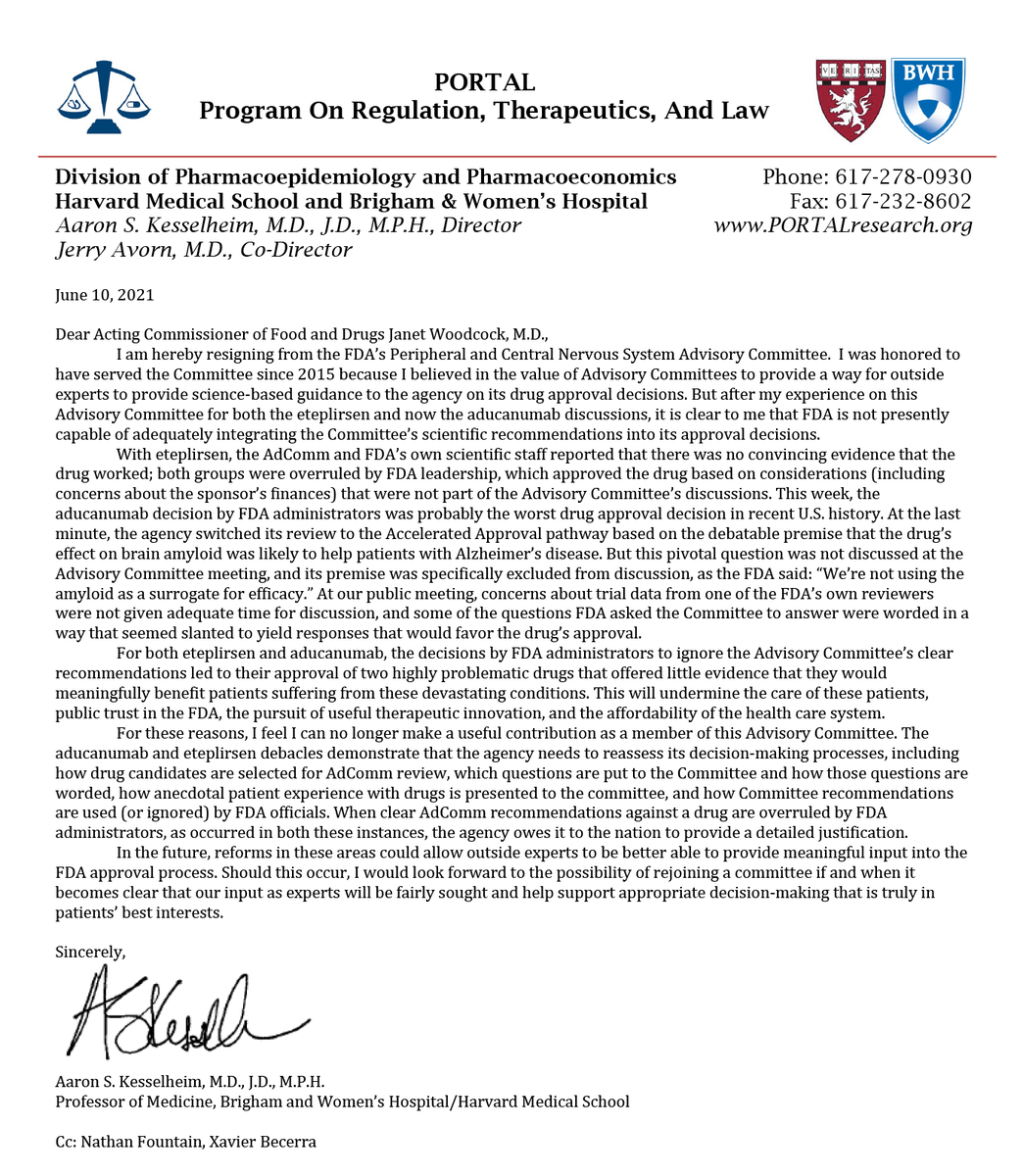The Pharma Drug Cartels and their broker, FDA
.
Mods are welcome to move this into an existing thread, though I haven't seen anything relatively recent that covers the Pharma Industry, or the FDA, broadly.
This is separate and apart from vaccines -- we already have a thread on vaccines generally, and another on mRNA-specific therapies (marketed as 'vaccines').
Starting this thread due to the recent news on an Alzheimer's drug recently approved by the FDA, though anyone can share any pharma/FDA-related news or commentary here (excluding vaccine-specific commentary).
https://www.npr.org/2021/06/11/10055671 ... g-approval

Mods are welcome to move this into an existing thread, though I haven't seen anything relatively recent that covers the Pharma Industry, or the FDA, broadly.
This is separate and apart from vaccines -- we already have a thread on vaccines generally, and another on mRNA-specific therapies (marketed as 'vaccines').
Starting this thread due to the recent news on an Alzheimer's drug recently approved by the FDA, though anyone can share any pharma/FDA-related news or commentary here (excluding vaccine-specific commentary).
https://www.npr.org/2021/06/11/10055671 ... g-approval
3 Experts Have Resigned From An FDA Committee Over Alzheimer's Drug Approval
Three experts have now resigned from a Food and Drug Administration advisory committee after the agency approved an Alzheimer's drug called Aduhelm against the wishes of nearly every member on the panel.
The drug — its generic name is aducanumab — was approved on Monday, setting off a variety of responses, from celebrations among some patients, caregivers and doctors to pointed questions about the drug's benefits and costs.
The latest exit comes from Dr. Aaron Kesselheim, a professor at Harvard Medical School who is also director of the Program On Regulation, Therapeutics, And Law at Brigham and Women's Hospital. He said the FDA is greenlighting Aduhelm despite not having enough proof that the drug will help Alzheimer's patients.
The controversial approval could set a precedent in how similar drugs are evaluated in the future, Kesselheim says.
"I think there's a real danger considering this to be a one-off event," he told NPR on Friday.
Approval of Aduhelm, he added, "now sets a precedent for the treatment of future [Alzheimer's Disease] drugs, as well as drug approvals more broadly, and the amount of data they need."
Doctor sends a scathing resignation letter to the FDA
"Accelerated Approval is not supposed to be the backup that you use when your clinical trial data are not good enough for regular approval," Kesselheim said via Twitter on Monday as the FDA issued its OK for Aduhelm.
Kesselheim called the FDA move "probably the worst drug approval decision in recent U.S. history" in a scathing resignation letter he sent to acting FDA Commissioner Janet Woodcock on Thursday.
"It is clear to me that FDA is not presently capable of adequately integrating the Committee's scientific recommendations into its approval decisions," wrote Kesselheim, who had served on the FDA advisory committee since 2015.
He said the FDA switched its approach to Aduhelm at the last minute to grant accelerated approval — a classification that will require the drug's makers to conduct another study after it is released to the public. And he alleged that when the advisory committee voted against the drug in November, its members had been given different criteria to consider than the FDA cited in an explanation of its decision.
Kesselheim also wrote that "some of the questions FDA asked the Committee to answer were worded in a way that seemed slanted to yield responses that would favor the drug's approval."
Still, 10 of the committee's 11 members voted against the drug's approval, according to the STAT medical news site, which added that the final member voted "uncertain."
The FDA acknowledged the controversy and attention the drug's approval has garnered. The agency "concluded that the benefits of Aduhelm for patients with Alzheimer's disease outweighed the risks of the therapy," Patrizia Cavazzoni, director of the FDA Center for Drug Evaluation and Research, said in a statement this week.
By resigning, Kesselheim joins neurologists David Knopman of the Mayo Clinic in Minnesota and Joel Perlmutter of Washington University in St. Louis, who announced their departures from the FDA's Peripheral and Central Nervous System Drugs Advisory Committee this week.
With the three resignations, the federal panel has now lost a third of its members who come from outside the government.
Aduhelm is the first new therapy to be approved for Alzheimer's disease since 2003.

